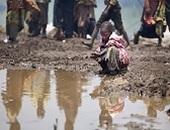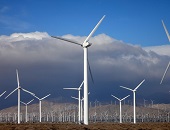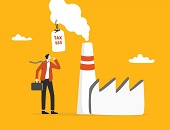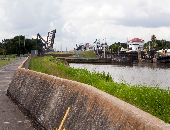Resilience and Development
For developing countries, how will climate change affect the progress of their economic development? Will these countries be able to use available opportunities through institutions such as the World Bank to adapt to changing conditions and improve people’s lives? “Development and resilience are mutually reinforcing,” said Stéphane Hallegatte, Senior Climate Change Adviser at the World Bank. “Development contributes to resilience, and resilience is crucial for safeguarding gains from increasingly frequent crises.” He was speaking at a webinar on September 5, 2024, on economic development in a changing climate. This was part of the series of talks sponsored by the Federal Reserve Bank […]
Immigration Spike Eases Labor Shortage
For accurate predictions, models depend on accurate input data. For this reason, the U.S. Congressional Budget Office (CBO) routinely updates demographic information about the United States. Recently, errors on the orders of millions of people have come to light. Why are the estimates of the number of immigrants off base, and what are the effects on economic planning? “The CBO now projects that 3.3 million people on net immigrated to the United States in both 2023 and 2024,” according to an economic letter released by the Federal Reserve Bank of San Francisco (FRBSF) on July 15, 2024. “These estimates are […]
How to Measure Nature Risk?
In June 2024, Dawn Lalonde, a beekeeper in northern Ontario noticed a sudden die-off of about a million bees. The bee die-off affects much more than the amount of honey she can collect from her hives. Without bees, local crops and orchards do not get adequately pollinated, leading to lower yields. This is but one recent example of a type of risk coming into new prominence in business and economics: nature risk. Nature risk, the loss of things in the world not created or domesticated by humans, affects businesses and economies directly, by impacting operations such as lack of pollination, […]
The Cost of Sustainability
It seems not a newscast goes by without mention of carbon taxes, or emissions trading, or severe weather events. As wildfire season ramps up, the benefits to switching to renewable energy are apparent. Gradually—some might say too gradually—climate policy (both to mitigate and adapt to changing conditions) is being implemented. New measures chiefly target industry sectors that have the greatest carbon emissions, such as fossil fuels, agriculture, and fashion. But how does sustainability affect the cost of capital, in other words, the minimum rate of return a company must earn before generating value? “There’s plentiful research on the benefits,” said […]
On the Move
“Humanity is on the precipice of a great climate migration, and Americans will not be spared,” says Abrahm Lustgarten, the author of a new book released March 26, 2024. “Tens of millions of people are likely to be driven from the places they call home. Poorer communities will be left behind, while growth will surge in the cities and regions most attractive to climate refugees. America will be changed utterly.” On the Move: The Overheating Earth and the Uprooting of America by Abrahm Lustgarten is a new book published by Farrar, Straus & Giroux. It is a vivid, journalistic account […]
Decarb Economics 101
To mitigate the consequences of climate change, the world requires international coordination. In 2015, the Paris Agreement was signed by 195 nations. Its long-term temperature goal is to keep the rise in mean global temperature to well below 2°C (3.6 °F) above pre-industrial levels, and preferably limit the increase to 1.5 °C (2.7 °F), which would reduce the worst effects of climate change. Many countries are developing policies to get themselves on a path toward achieving the agreed-upon 1.5 °C goal. Although present progress may seem piecemeal, in the words of a Chinese proverb, “A great journey begins with a single step.” The figure below […]
Tax or Cap?
Carbon tax or cap and trade? These are terms bandied about in the political arena as countries decide how to address global warming. “There is a clear consensus among economists,” said Roger Gordon, professor of economics at University of California at San Diego, “that the best way to address global warming is through the global use of a carbon tax on CO2 emissions.” On January 18, 2024, he was speaking at a webinar as part of the biweekly series of talks, titled the Virtual Seminar on Climate Economics, sponsored by the Federal Reserve Bank of San Francisco (FRBSF). “With a carbon tax,” […]
Diversifying Wildfire Risk
Climate change is altering risk profiles the world over. In the US, it has led to an increase in wildfire season length, wildfire frequency, and the size of burned area. When it comes to such disasters, is the economic risk only borne by those in the risky area, or can the economic risk be shared among investors? A recent webinar looked at a longstanding tool for financial adaptation. For nearly a century, mortgages have been used to create mortgage-backed securities (MBSs) in order to share the risk (and thus the return) of financing real estate. “What are the benefits of […]
Flood Economics
When it comes to natural disasters such as flooding, does it make more economic sense to control the flood? Or to sit back, suffer the consequences, and count on insurance? Climate change leads to more frequent and more intense flooding. As these risks intensify, public funds will often be used to protect communities. Recent work done by economists estimates the amount and distribution of benefits from a major form of public flood risk adaptation, flood control levees. A levee is an embankment built to prevent the overflow of a river. The efficiency and equity implications of levees were investigated by […]
World Energy Outlook
On October 24, 2023, the International Energy Agency (IEA) released its annual report, World Energy Outlook (WEO), to an international audience. The agency states that the energy world “remains fragile but has effective ways to improve energy security and tackle emissions.” Agency analysts looked at how close the countries of the world are to meeting the objectives of the Net Zero Emissions by 2050 (NZE) Scenario, which limits global warming to 1.5 °C, a goal signed by many countries and often referred to as the Paris Agreement. [As of March 2021, 194 states and the European Union have signed the […]










